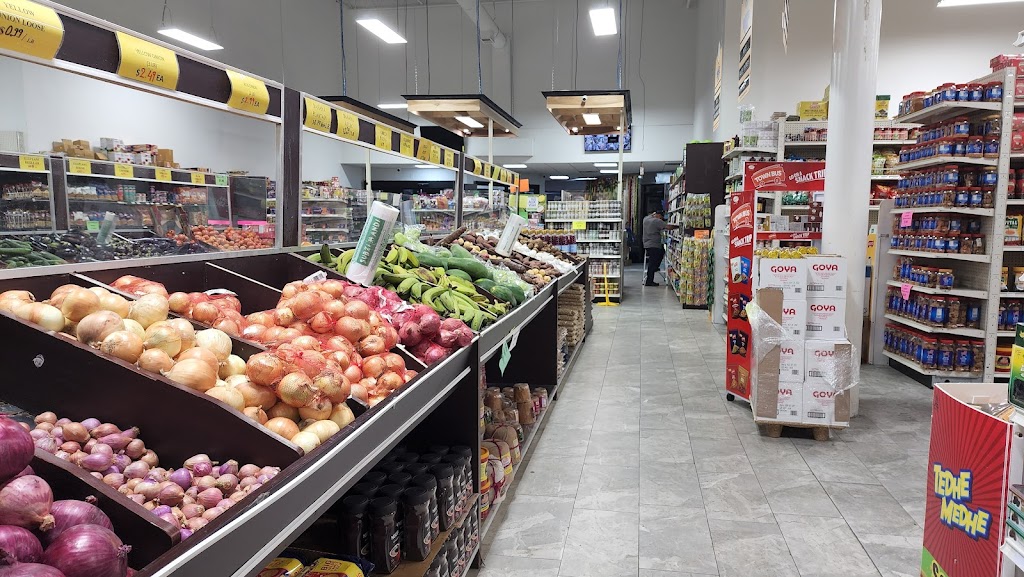Discover Delights At The Vibrant Subzi Mandi Farmers Market
With a plethora of vibrant colors and the tantalizing aroma of fresh produce, subzi mandi farmers markets are a symphony of flavors and an intrinsic part of the Indian culinary landscape.
These bustling marketplaces, often held in the early hours of the morning, connect farmers directly to consumers, offering an array of seasonal fruits, vegetables, herbs, and spices. At subzi mandi farmers markets, one can witness the vibrant tapestry of India's agricultural heritage.
Beyond providing access to fresh and locally grown produce, subzi mandi farmers markets play a vital role in supporting local farmers and preserving traditional farming practices. They foster a sense of community and serve as a platform for cultural exchange.
subzi mandi farmers market
Subzi mandi farmers markets, a vibrant part of India's culinary landscape, offer fresh produce, support local farmers, and preserve traditional farming practices. Key aspects include:
- Fresh Produce: Subzi mandis provide access to a variety of seasonal fruits, vegetables, herbs, and spices, ensuring nutritional value and taste.
- Local Support: These markets connect farmers directly to consumers, supporting local economies and livelihoods.
- Cultural Exchange: Subzi mandis are a meeting point for communities, fostering cultural exchange and a sense of belonging.
- Preservation of Tradition: They preserve traditional farming methods, ensuring the continuity of agricultural heritage.
- Environmental Sustainability: By promoting local production and consumption, subzi mandis contribute to environmental sustainability.
In essence, subzi mandi farmers markets are not just marketplaces but vibrant community hubs that nourish both body and soul. They represent the heart of India's agricultural heritage, connecting us to our food, our farmers, and our traditions.
Fresh Produce
Subzi mandi farmers markets are a crucial source of fresh, seasonal produce, offering a wide variety of fruits, vegetables, herbs, and spices. This diversity ensures that consumers have access to a balanced and nutritious diet, supporting overall health and well-being.
Seasonal produce is not only more flavorful but also contains higher levels of nutrients compared to produce grown out of season or transported over long distances. By providing access to fresh, locally grown produce, subzi mandis promote healthy eating habits and support local farmers who prioritize sustainable farming practices.
Moreover, the variety of produce available at subzi mandis allows for culinary exploration and experimentation. Consumers can discover new flavors, textures, and ingredients, inspiring creativity in the kitchen and promoting a diverse and enjoyableexperience.
In summary, the fresh produce available at subzi mandi farmers markets is a cornerstone of healthy and sustainable living. It supports local farmers, promotes nutritional well-being, and fosters a vibrant culinary culture.
Local Support
Subzi mandi farmers markets play a vital role in supporting local economies and livelihoods by fostering a direct connection between farmers and consumers. This connection has several key facets:
- Economic Empowerment: Subzi mandis provide farmers with a platform to sell their produce directly to consumers, eliminating intermediaries and increasing their earnings. This economic empowerment enables farmers to invest in their farms, improve their livelihoods, and contribute to the local economy.
- Job Creation: Subzi mandis create employment opportunities not only for farmers but also for vendors, laborers, and other individuals involved in the supply chain. These jobs contribute to the overall economic growth and development of the local community.
- Community Resilience: By supporting local farmers, subzi mandis enhance the resilience of the local food system. They reduce reliance on external sources of produce, ensuring a steady supply of fresh food even during disruptions in the global supply chain.
- Cultural Preservation: Subzi mandis are often deeply rooted in local traditions and culture. They provide a space for farmers to share their knowledge and skills, preserving traditional farming practices and agricultural heritage.
In conclusion, the local support provided by subzi mandi farmers markets extends beyond economic benefits. These markets foster a sense of community, preserve cultural heritage, and contribute to the overall well-being of the local population.
Cultural Exchange
Subzi mandi farmers markets are not just marketplaces but also vibrant social hubs where communities come together, fostering cultural exchange and a sense of belonging. This cultural exchange manifests in several key facets:
- Community Gathering: Subzi mandis serve as a meeting point for people from diverse backgrounds, creating a sense of community and shared identity. Farmers, vendors, and consumers interact, exchange stories, and build relationships.
- Culinary Traditions: Subzi mandis showcase the culinary traditions of the region. Farmers bring their unique produce, reflecting local flavors and cooking techniques. Consumers can learn about traditional recipes, ingredients, and cooking methods, fostering a deeper appreciation for their cultural heritage.
- Cultural Performances: In some subzi mandis, cultural performances such as folk songs, dances, and storytelling take place, adding to the lively atmosphere and creating a sense of celebration and shared cultural identity.
- Preservation of Languages: Subzi mandis often operate in local languages, contributing to the preservation and promotion of linguistic diversity. Farmers and consumers use their native languages to communicate, fostering a sense of belonging and cultural continuity.
In conclusion, the cultural exchange that takes place at subzi mandi farmers markets is an integral part of their significance. These markets are spaces where communities connect, celebrate their heritage, and pass on cultural traditions to future generations.
Preservation of Tradition
Subzi mandi farmers markets play a crucial role in preserving traditional farming methods, ensuring the continuity of agricultural heritage. These markets provide a platform for farmers to showcase and sell their produce grown using traditional techniques that have been passed down through generations.
Traditional farming methods often prioritize sustainability, biodiversity, and local adaptation. Farmers rely on natural resources, such as organic fertilizers and pest control, to cultivate their crops. By supporting traditional farming practices, subzi mandis contribute to the preservation of agricultural knowledge and skills that are essential for sustainable food production.
Moreover, subzi mandis serve as a bridge between farmers and consumers, fostering a greater appreciation for traditional farming methods. Consumers can interact directly with farmers, learn about their practices, and gain a deeper understanding of the importance of preserving agricultural heritage.
In conclusion, the preservation of tradition at subzi mandi farmers markets is vital for maintaining the continuity of agricultural heritage, promoting sustainable farming practices, and connecting consumers to the roots of their food.
Environmental Sustainability
Subzi mandi farmers markets play a vital role in promoting environmental sustainability by fostering local production and consumption of food. This connection manifests in several key ways:
- Reduced Transportation Emissions: By promoting local production and consumption, subzi mandis reduce the need for long-distance transportation of produce. This reduction in transportation leads to lower greenhouse gas emissions, contributing to the fight against climate change.
- Support for Sustainable Farming Practices: Subzi mandis provide a platform for farmers who prioritize sustainable farming methods, such as organic farming and agroforestry. By supporting these farmers, subzi mandis encourage the adoption of practices that protect soil health, water resources, and biodiversity.
- Seasonality and Diversity: Subzi mandis promote the consumption of seasonal and locally adapted produce, which requires fewer resources and inputs to grow. This focus on seasonality and diversity also contributes to a more balanced and sustainable food system.
Furthermore, subzi mandis raise awareness about environmental issues and promote responsible consumer choices. By connecting consumers directly with farmers, these markets foster a greater understanding of the environmental impact of food production and consumption.
In conclusion, the connection between environmental sustainability and subzi mandi farmers markets is crucial for creating a more sustainable and resilient food system. By promoting local production and consumption, subzi mandis contribute to reducing emissions, supporting sustainable farming practices, and educating consumers about the importance of environmental stewardship.
Frequently Asked Questions about Subzi Mandi Farmers Markets
Subzi mandi farmers markets play a vital role in local economies, communities, and the environment. Here are answers to some frequently asked questions about these vibrant marketplaces:
Question 1: What are the benefits of buying produce from subzi mandi farmers markets?
Answer: Buying produce from subzi mandi farmers markets offers several benefits. Firstly, consumers have access to fresh, seasonal, and locally grown fruits and vegetables. Secondly, these markets support local farmers and their livelihoods, contributing to the local economy. Thirdly, subzi mandis foster a sense of community and cultural exchange, preserving traditional farming practices and culinary traditions.
Question 2: How do subzi mandi farmers markets contribute to environmental sustainability?
Answer: Subzi mandis promote environmental sustainability by reducing transportation emissions, supporting sustainable farming practices, and encouraging the consumption of seasonal and locally adapted produce. By connecting consumers with local farmers, these markets raise awareness about the environmental impact of food production and consumption.
Summary: Subzi mandi farmers markets offer numerous benefits, including access to fresh and local produce, support for local farmers, preservation of cultural traditions, and promotion of environmental sustainability. By embracing these markets, consumers can make informed choices that support their communities and the environment.
Conclusion
Subzi mandi farmers markets are more than just marketplaces; they are vibrant hubs of economic, social, cultural, and environmental significance. These markets provide access to fresh, seasonal, and locally grown produce, supporting local farmers and preserving traditional farming practices.
By promoting local production and consumption, subzi mandis contribute to environmental sustainability, reduce transportation emissions, and foster a sense of community. They are spaces where diverse cultures meet, culinary traditions are shared, and agricultural heritage is celebrated.
Embracing subzi mandi farmers markets is a conscious choice that supports local economies, promotes environmental stewardship, and enriches our communities. By choosing to shop at these vibrant marketplaces, we invest in a sustainable and resilient future where fresh, healthy food is accessible to all.
- Sara Haines Twin
- Nina Aouilk Mother
- What Happened To Peter Attia
- Ian Watts Sade
- Ivanka Cerovac Balerina

SUBZI MANDI FARMERS MARKET Updated October 2024 133 Youngs Rd

Subzi Mandi Farmers Market 133 Youngs Rd, Hamilton Township, NJ 08619

Subzi Mandi Farmers Market 133 Youngs Rd, Hamilton Township, NJ 08619